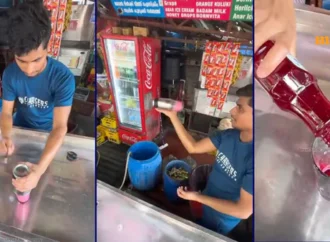Ensuring Food Safety in a Globalized World: The Role of Auditing, Testing, and Training
In today’s interconnected world, food travels across borders and continents, making food safety more crucial than ever. Ensuring the quality and safety of food products is a shared responsibility, involving governments, businesses, and consumers. This article will explore the vital roles that food safety auditing, testing, and training play in maintaining high standards and protecting public health. Join us and delve into best practices and global standards that help safeguard our food supply chain.
Food Safety Auditing – Building Trust and Ensuring Compliance

Food safety audits are essential in maintaining a robust food safety culture within an organization. They serve as a systematic examination of a company’s food safety practices, identifying areas for improvement and ensuring compliance with local and international regulations.
There are three types of food safety audits: internal, external, and third-party. Internal audits are conducted by the organization itself, while external audits involve a separate company or organization. Third-party audits are performed by independent certification bodies that assess an organization’s compliance with specific food safety standards, such as the Hazard Analysis and Critical Control Points (HACCP), International Organization for Standardization (ISO) 22000, and Safe Quality Food (SQF) certification programs.
Audits help businesses build trust with their customers and stakeholders by demonstrating their commitment to food safety and continuous improvement.
Food Testing – The Science Behind Safe Food
 Food testing plays a crucial role in verifying the quality, safety, and compliance of food products with local and international regulations. Various food testing methods include microbiological, chemical, physical, and sensory analysis.
Food testing plays a crucial role in verifying the quality, safety, and compliance of food products with local and international regulations. Various food testing methods include microbiological, chemical, physical, and sensory analysis.
Emerging trends in food testing technology are revolutionizing the industry, with rapid testing methods and automation becoming increasingly prevalent. These advancements help reduce the time required for testing and increase the accuracy of the results.
Food allergen testing is another critical aspect of food safety, as it ensures the accurate labeling of products, which is vital for protecting consumers with food allergies.
Food Safety Training – Empowering the Workforce and Reducing Risks

Food safety training is essential in preventing foodborne illnesses and contamination within the food industry. By educating employees on sanitation, personal hygiene, temperature control, and allergen management, businesses can significantly reduce the risk of foodborne outbreaks.
Several types of food safety training programs exist, including online, in-person, and blended learning options. Accredited food safety training providers offer certification for employees, ensuring they possess the knowledge and skills required to maintain a safe working environment.
Navigating Global Food Safety Regulations

Harmonizing food safety standards in a globalized world can be challenging. International organizations such as the World Health Organization (WHO) and the Codex Alimentarius Commission play a vital role in setting global food safety standards and guidelines.
Businesses must ensure compliance with both local and international food safety regulations, which may involve working with regulatory authorities and implementing best practices within their organization.
Conclusion:
Food safety is a critical aspect of the global food supply chain, and it is only possible through a combination of auditing, testing, and training. By adhering to international standards, employing cutting-edge testing technology, and providing comprehensive training for employees, businesses can ensure the safety of their products while also building trust with consumers. Ultimately, these efforts not only protect public health but also contribute to a more sustainable and responsible food system for all.
In today’s interconnected world, food travels across borders and continents, making food safety more crucial than ever. Ensuring the quality and safety of food products is a shared responsibility, involving governments, businesses, and consumers. This blog post will explore the vital roles that food safety auditing, testing, and training play in maintaining high standards and protecting public health. Join us as we delve into best practices and global standards that help safeguard our food supply chain.
 Food Manifest
Food Manifest 
















Leave a Comment
Your email address will not be published. Required fields are marked with *